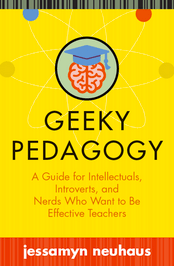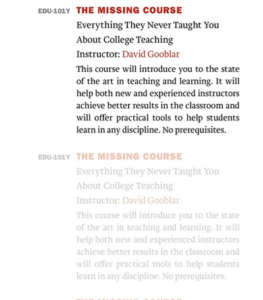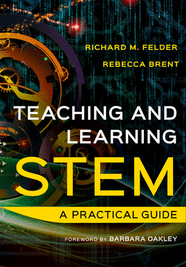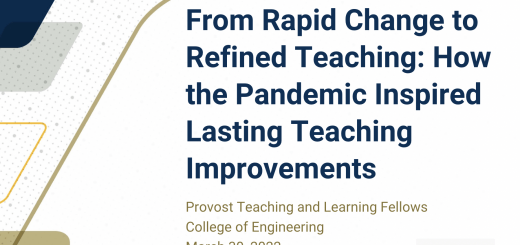CTL Recommends: Books for Catching Up on Teaching Best Practices

Faculty across the country have been challenged to completely change their approach to teaching this Spring as we all move from face-to-face courses to remote teaching environments. In this brief series of posts, CTL faculty recommend books about teaching, learning, and pedagogy that make good resources for faculty during this disruption to traditional courses.
 Geeky Pedagogy: A Guide for Intellectuals, Introverts, and Nerds Who Want to Be Effective Teachers, Jessamyn Neuhaus, West Virginia University Press, 2019
Geeky Pedagogy: A Guide for Intellectuals, Introverts, and Nerds Who Want to Be Effective Teachers, Jessamyn Neuhaus, West Virginia University Press, 2019
This book has a lighthearted, personal tone, while at the same time delivering practical, usable, and encouraging advice about teaching in higher education. Neuhas’s writing is easily accessible as she dives into five key aspects of teaching from a “geek’s” perspective: awareness, preparation, reflection, support, and practice. (The West Virginia University Press has an excellent series on teaching and learning with short, easily accessible teaching guides worth perusing.)
 The Missing Course: Everything They Never Taught You about College Teaching, David Gooblar, Harvard University Press, 2019
The Missing Course: Everything They Never Taught You about College Teaching, David Gooblar, Harvard University Press, 2019
Gooblar, long-time writer of the Pedagogy Unbound column in the Chronicle of Higher Education, argues that many if not most academics are well trained in research but rarely in teaching, despite a wealth of knowledge about brain and learning science in the last 25 years. This book offers a boot camp for designing and teaching a class and, most importantly, helping students learn.
 Teaching and Learning in STEM: A Practical Guide, Richard Felder and Rebecca Brent, Wiley/Jossey-Bass, 2016
Teaching and Learning in STEM: A Practical Guide, Richard Felder and Rebecca Brent, Wiley/Jossey-Bass, 2016
Felder and Brent are longtime STEM faculty members and faculty developers, and in this book they draw on their experience and extensive teaching and learning research to share easy-to-implement strategies to enhance learning in college-level STEM courses. They cover topics including active learning, educational technology, assessments, and helping students develop critical skills such as communication and creative thinking.




